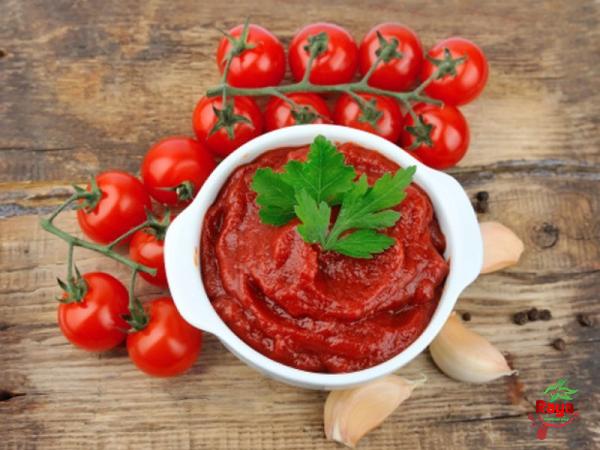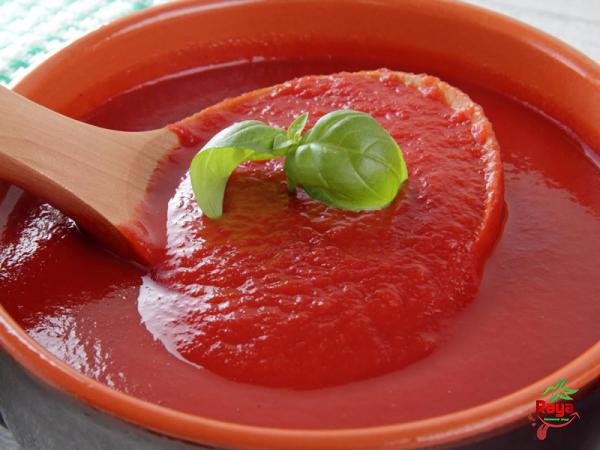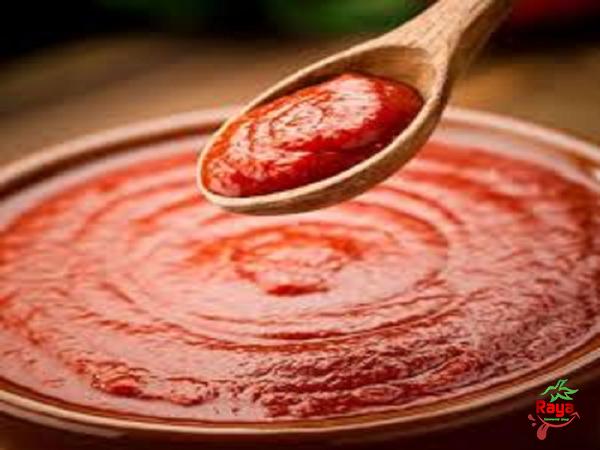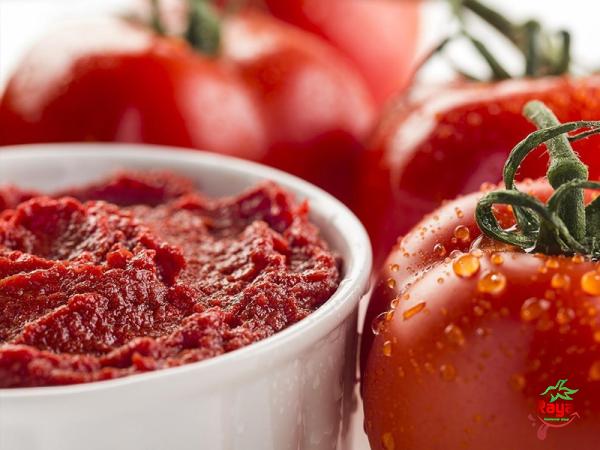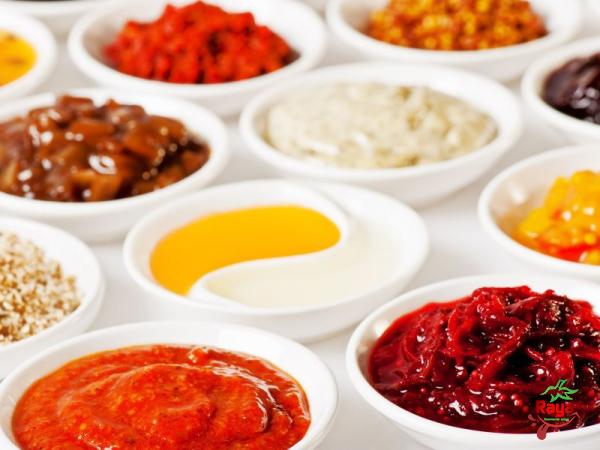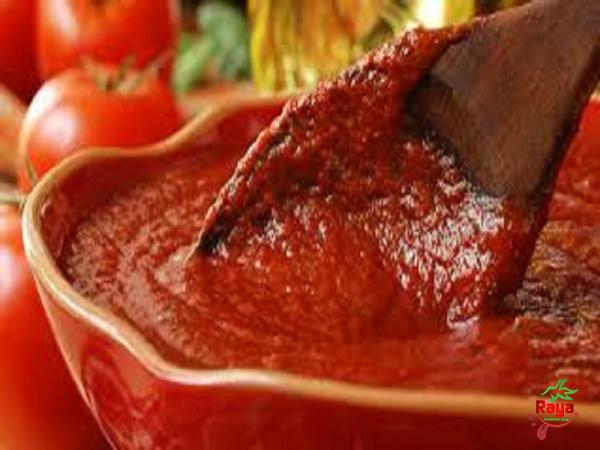Tomato paste nutrition facts
Let’s first take a look at the method of manufacturing tomato paste before we move on to addressing the dietary advantages of utilizing tomato paste
To begin, the creation of tomato paste is not particularly complicated and does not require the presence of any other components
Nevertheless, producers have the choice of applying either the “hot break” or the “cold break” production approach while constructing it
Both of these words pertain to a unique technique
You may find a more in-depth description of the production methods here, but in the interim, here is a shortened version
After they have been cleaned and sorted, the tomatoes are sliced into smaller pieces and continuing to be processed until they produce a paste
After that, the tomatoes are heated by the makers to a temperature of either 65-75 °C (149-167 °F) (cold break) or 85-95 °C (185-203 °F) (hot break) (hot break)
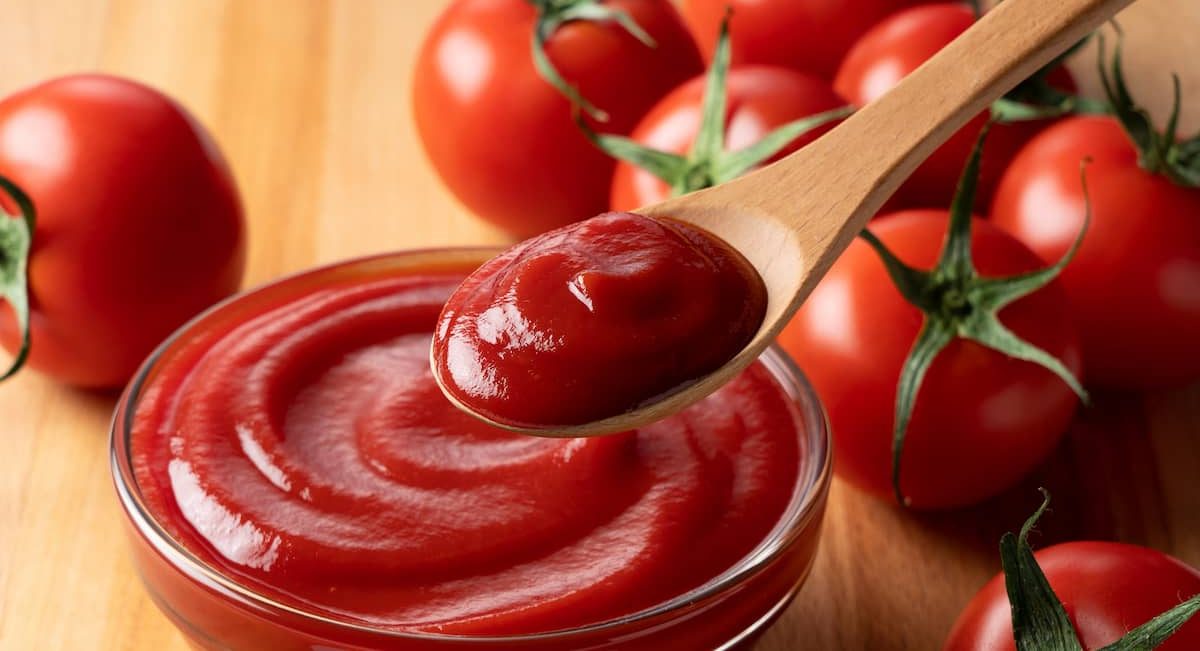
a strainer, which results in a consistency similar to sauce that is smooth and free of lumps
Following this process, the resulting tomato sauce is placed to a simmer for a number of hours while passing through a variety of distinct phases of evaporation
As a result of the water content of the tomatoes being evaporated during this phase of the production process, the consistency of the sauce will become more concentrated
When the tomato paste has acquired the texture that you want, you may next put it through a process of pasteurization at a temperature of around 90 degrees Celsius
After all is said and done, the tomato paste is next packaged and placed up for sale in various places
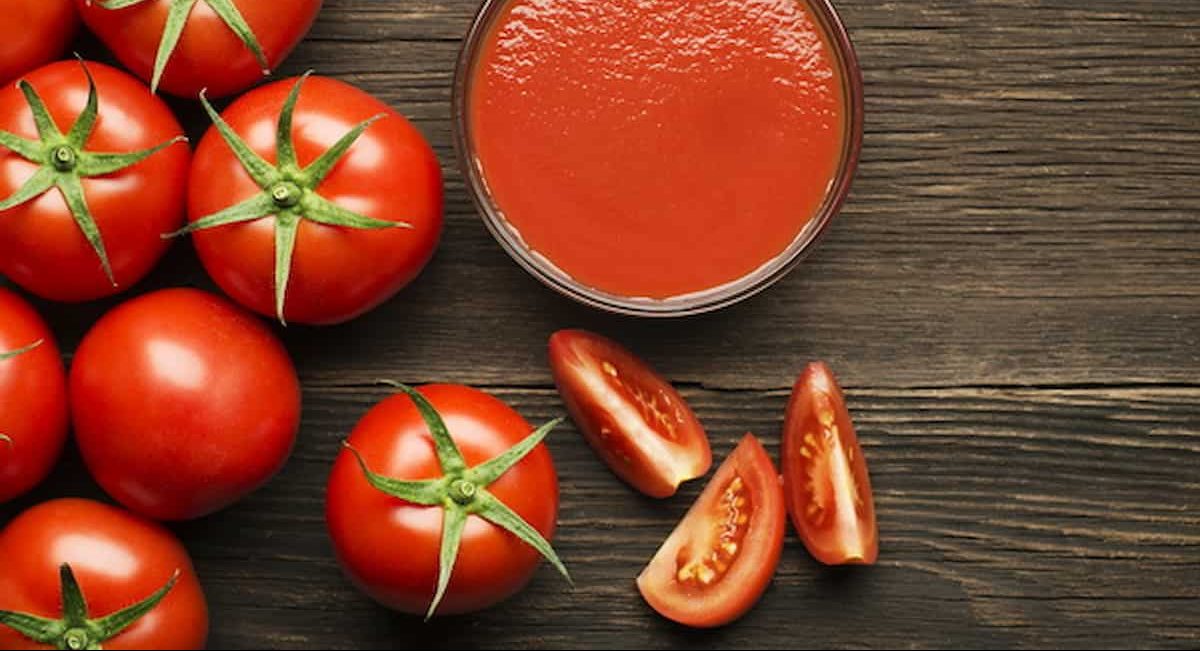
Tomato paste fat
In order to get an answer to the topic of whether or not tomato paste contributes to weight gain, one must first investigate the quantity of fat that it contains
Because it is common knowledge that a buildup of fat in the body is one of the factors that contribute to obesity
To our good fortune, tomato paste does not qualify as a material that is both unhealthy and likely to cause weight gain in this regard
Because this material contains extremely little fat, and one might even argue that it does not meet even a small portion of the body’s typical demand for fat, it cannot be considered a source of fat
Because nonetheless, the body needs a particular quantity of fat in order to maintain its metabolism and carry out its functions
The amount of total fat in tomato paste is 0
5 grams for every 100 grams of the product
In addition, there is just 0
1 gram of saturated fat and 0
3 grams of unsaturated fat in every 100 grams of paste
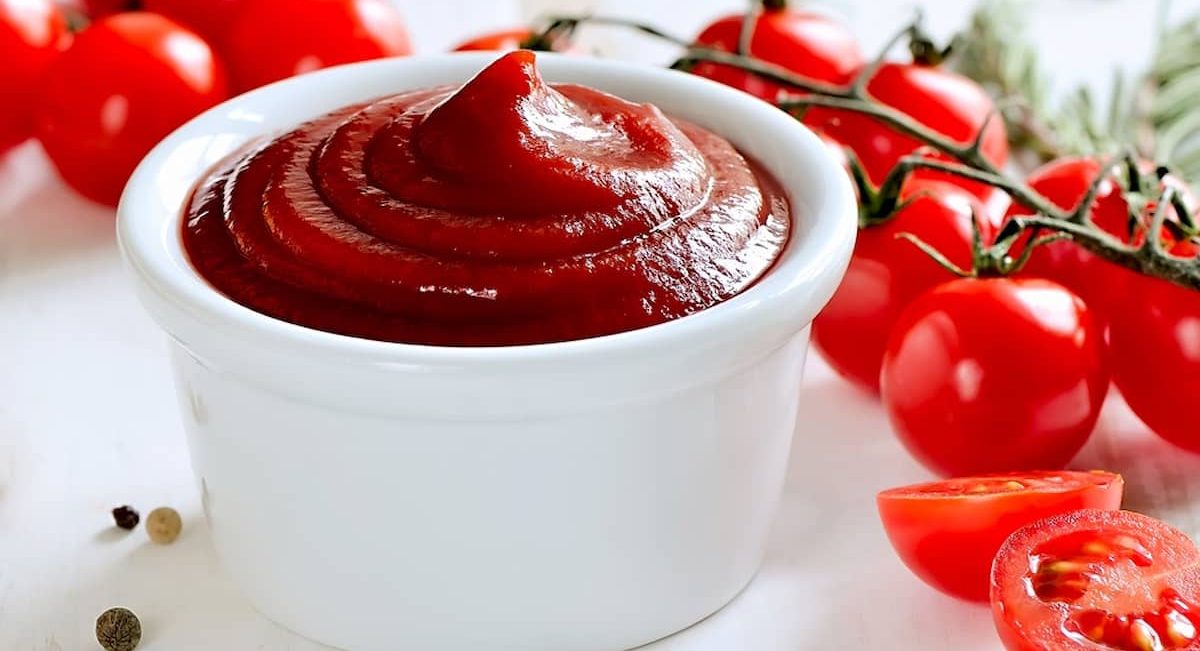
The fact that this quantity of tomato paste does not contribute in any way to the fulfillment of the body’s daily demand for fat is an intriguing aspect of this situation
This indicates that the use of tomato paste does not result in an increase in overall body fat
In this respect, it is not possible for it to produce weight gain or obesity in the body because it is natural
The percentages of fat that were mentioned in the preceding paragraph were based on one hundred grams of tomato paste
Just try to wrap your head around the amount of fat that may be in one spoonful of tomato paste! You are totally correct in every way
Because there is so little fat in a teaspoonful of paste, it is quite unlikely that eating it will cause you to gain weight
In the table that details tomato paste’s nutritional value, it is reassuring to see that the percentage of unhealthy fats like cholesterol is also projected to be 0%
This is not a negative piece of information to have
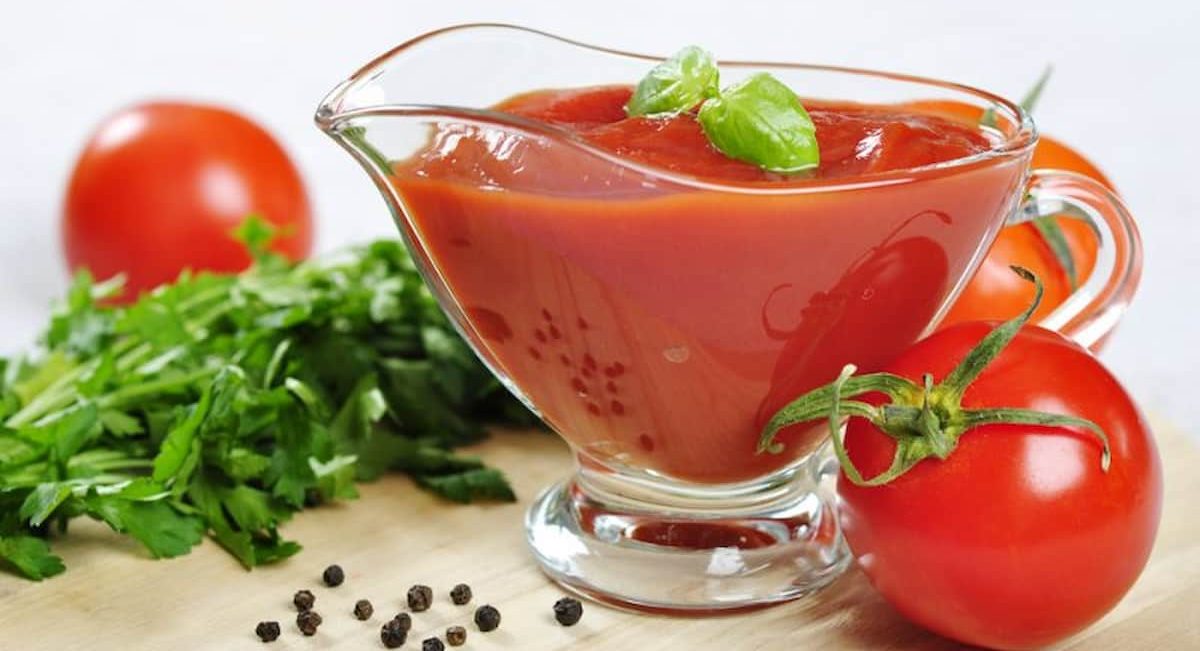
Tomato paste carbohydrate
If you want to know whether or not eating tomato paste can cause obesity, you should also pay attention to the number of carbohydrates that it has
This is important information to have on hand when attempting to answer this question
primarily due to the fact that carbohydrates play a significant role in the process of supplying the body with the energy it requires to function properly
If the food contains more carbohydrates than what is required on a daily basis, the body will store the excess amount as fat if it consumes the food
If the food contains more protein than what is required on a daily basis, the body will store the protein as fat

If these additional fats are not metabolized, they will, in due time, cause obesity and weight gain in the area that is being affected
This is due to the fact that modern diets typically recommend consuming fewer carbohydrates for the very same reason, which explains why this is the case
To a much greater extent when it is not accompanied by any form of physical activity
It would appear that utilizing tomato paste that is high in carbohydrates can present a few challenges here and there
Mainly due to the fact that it is consumed almost constantly in one form or another as part of the diet
According to the information that was gathered by researchers, there are 19 grams of carbohydrates in every 100 grams of tomato paste
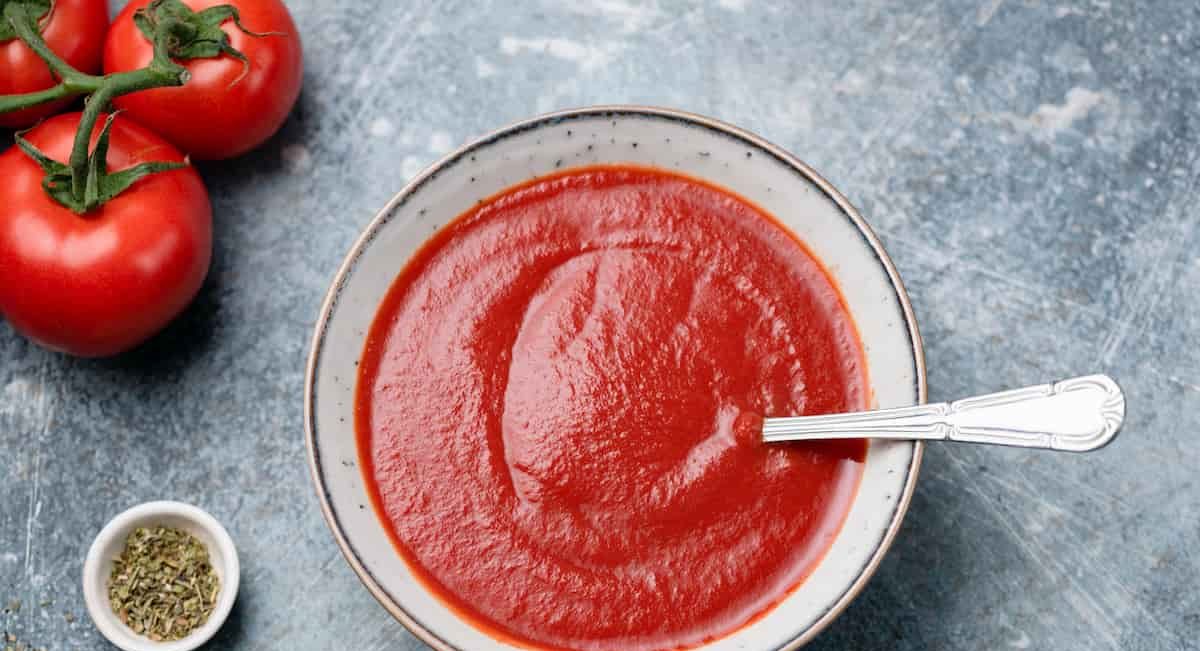
This amount of carbohydrates is capable of satisfying 6 percent of the body’s daily requirement for this specific substance
This requirement is based on the body’s need for carbohydrates
To put it another way, one teaspoon of tomato paste has three grams of carbohydrates and can provide the body with less than one percent of its daily requirements for carbohydrate consumption
As a result of this, it would appear that consuming tomato paste does not contribute to the development of obesity due to the effect that this substance has on carbohydrates
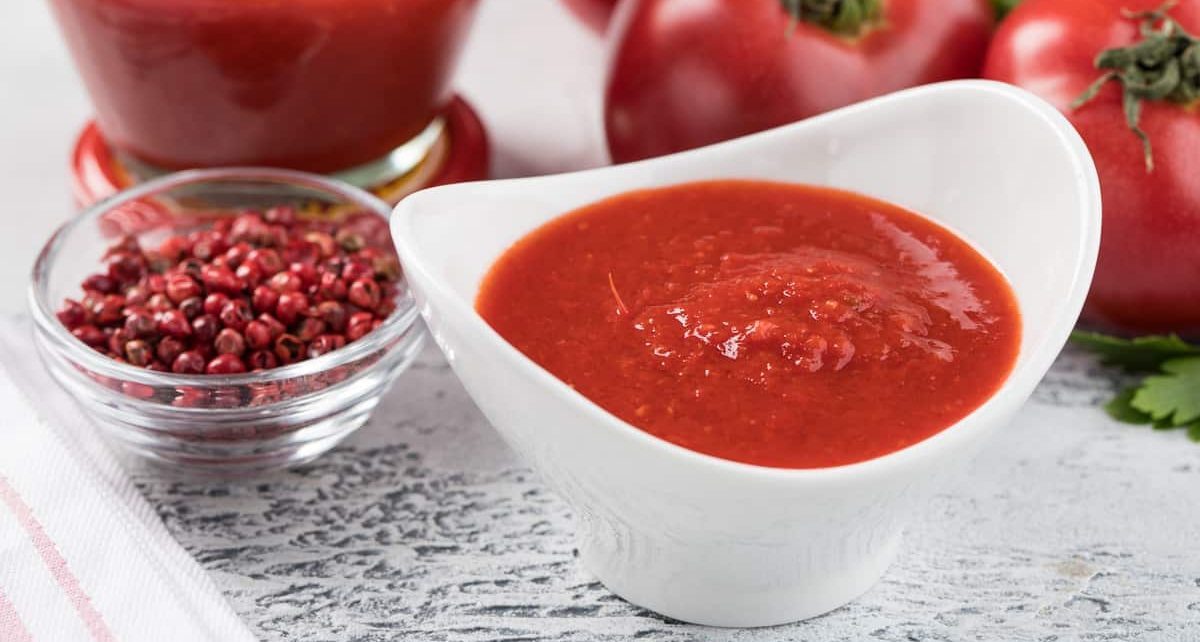
Tomato paste carbohydrates
Because it contains such a diverse array of minerals, vitamins, carbohydrates, and lipids, tomato paste offers a myriad of beneficial properties to one’s diet
According to a number of studies, cooked tomato products such as tomato paste have much higher levels of lycopene
Lycopene is an essential antioxidant that is well-known for its cancer-preventative effects against a variety of cancer types
In addition, lycopene protects the skin from the damaging effects of ultraviolet light
Carotenoids, which protect the heart and help maintain the health of the skin, may be found in abundance in tomato paste
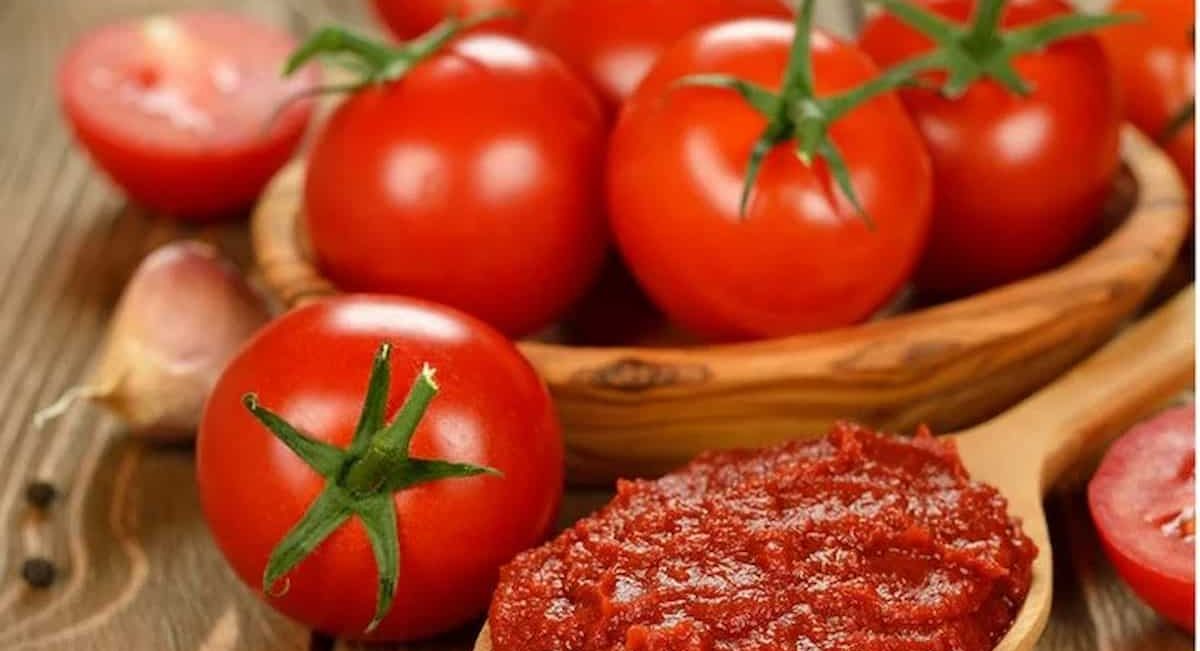
Cooking tomato paste in a stew allows your body to more effectively absorb the essential antioxidant compounds it contains and also raises the lycopene amount
Lycopene protects against inflammatory diseases and lowers the chance of developing some types of cancer, most notably prostate cancer
Tomato paste has a number of health benefits, one of which is the ability to reduce the risk of sunburn by more than 40 percent
This is due to the presence of carotenoids in tomato paste, most notably lycopene
Ingesting tomato paste on a daily basis offers these benefits
Carotenoids are known to enhance heart health by reducing levels of LDL cholesterol, which is commonly known as “bad cholesterol,” in the body
Tomato paste includes a high concentration of carotenoids, which are known to benefit heart health
Carotenoids are also capable of inhibiting the oxidation of cholesterol, which is the process that results in the formation of plaque and the hardening of arteries
Carotenoids may be found in a variety of fruits and vegetables
It has been demonstrated that improving blood pressure may be accomplished by the consistent ingestion of tomato paste
This helps to ensure that blood is flowing properly and reduces the risk of having either a heart attack or a stroke

Tomato paste keto
Because one can of tomato paste contains around 25 grams of net carbs and one can contains approximately 170 grams, using tomato paste as a cooking sauce while adhering to the ketogenic diet, whether it be the Standard or Low-Carb version, is quite challenging
This dish is not appropriate for consumption when following the ketogenic diet and should be avoided
This item is one of the numerous things that you consume that will not supply you with healthy fats, and it is one of them
This item is not suitable for consumption on a ketogenic diet due to the large amount of carbohydrates it contains
The ketogenic diet, usually referred simply as keto, is a well-liked eating plan that emphasizes maintaining a healthy balance of protein, fat, and carbohydrates in roughly the following proportions: 10 percent of total calories should come from carbohydrates or less
Approximately 65–80 percent of the total calories come from fat
Protein accounts for between 10 and 20 percent of the total calories
Maintaining an awareness on carbohydrate intake is a useful strategy for those following a ketogenic diet
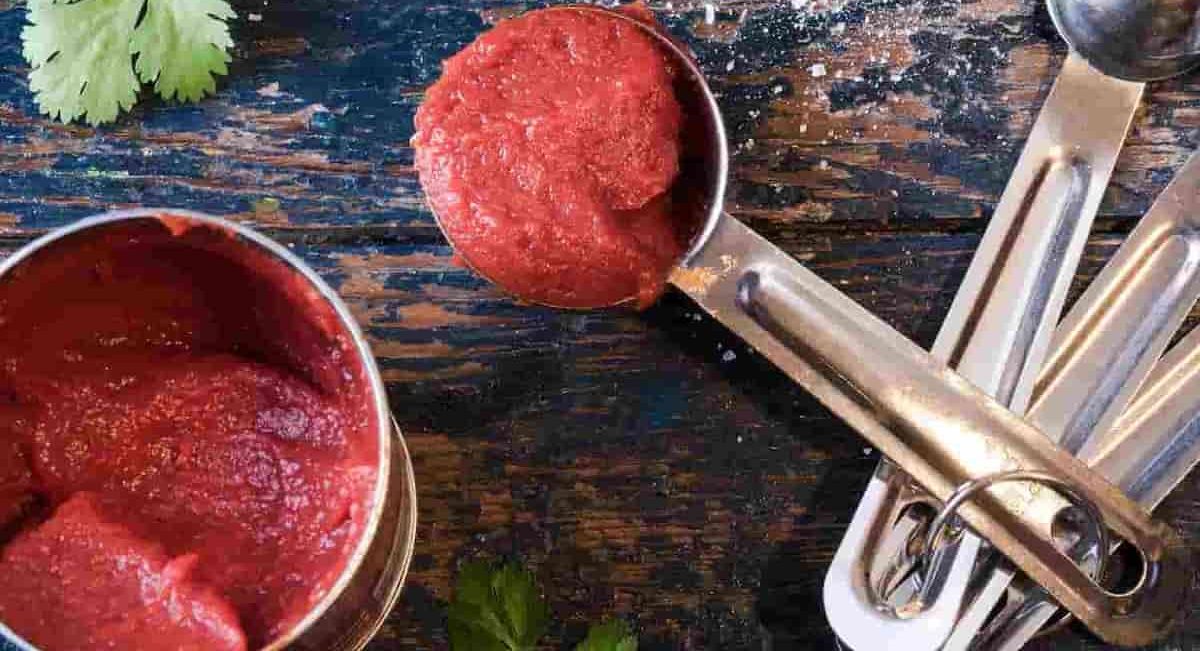
When your mind is in the state of ketosis, it maintains a constructive and optimistic awareness that there are numerous straightforward ways to lower the amount of carbohydrates in your diet
For example, requesting a sandwich wrapped in lettuce rather than one with a bread
You may also replace regular sugar with one of the keto-friendly options listed above and add it to your coffee or tea
The Keto diet requires following a strict low-carb regimen, with daily net carbohydrate intake limited to no more than 30 grams and eventually approaching 0 grams
It’s possible for fat to make up as much as 80 percent of your daily intake of macronutrients
Because of this, your body will go into a metabolic condition known as ketosis
When the body is in this condition of ketosis, it is more likely to use fat as a source of energy
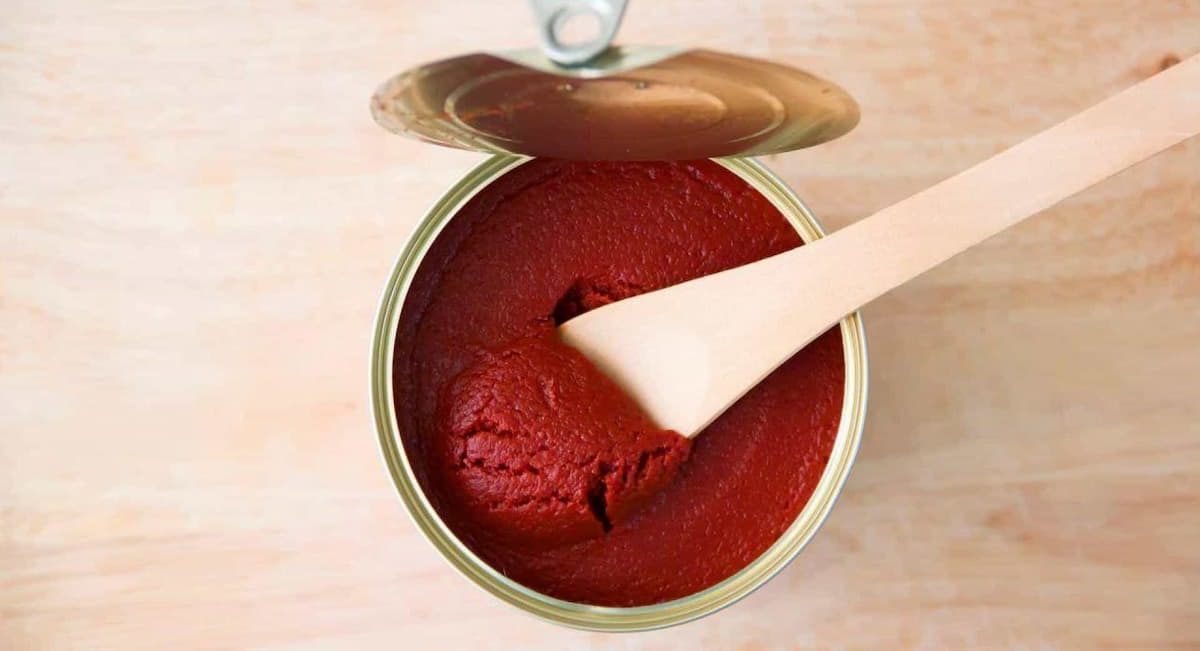
Tomato paste sugar-free
One element that makes you doubt all you believed you understood about packaged foods is the added sugar in tomato paste
At first glance, you’d think bubbly drinks, fruit-flavored gummies, and rainbow-colored kids’ cereals are the top sources of extra sugar in grocery store aisles
Turns out, there are over 50 different types of added sugar hidden in many of the most commonly consumed items, from yogurt to bread to ketchup
Even the foods that are heavily marketed as healthy, such as whole-grain foods, can be loaded with added sugar
This makes it even more difficult to recognize and avoid added sugar
The average American consumes around 19 teaspoons of sugar per day, compared with the recommended amount of 6, according to the American Heart Association

Sugar is typically added to tomato-based sauces to enhance flavor and preserve the shelf-life of the pantry staple
They can contain anywhere from 1 to 3 teaspoons of added sugar for a half-cup serving – that’s already half of the recommended daily amount
Sorting through the dozens of different tomato sauce options to find one that isn’t packed with sugar can make one’s head spin
Thankfully, we’ve put a list together to end that confusion once and for all
Here are the main components to keep in mind while shopping for tomato sauce, plus the top 15 sugar-free tomato sauce options for your next pasta night, with all the garden-fresh goodness and none of the added sweeteners
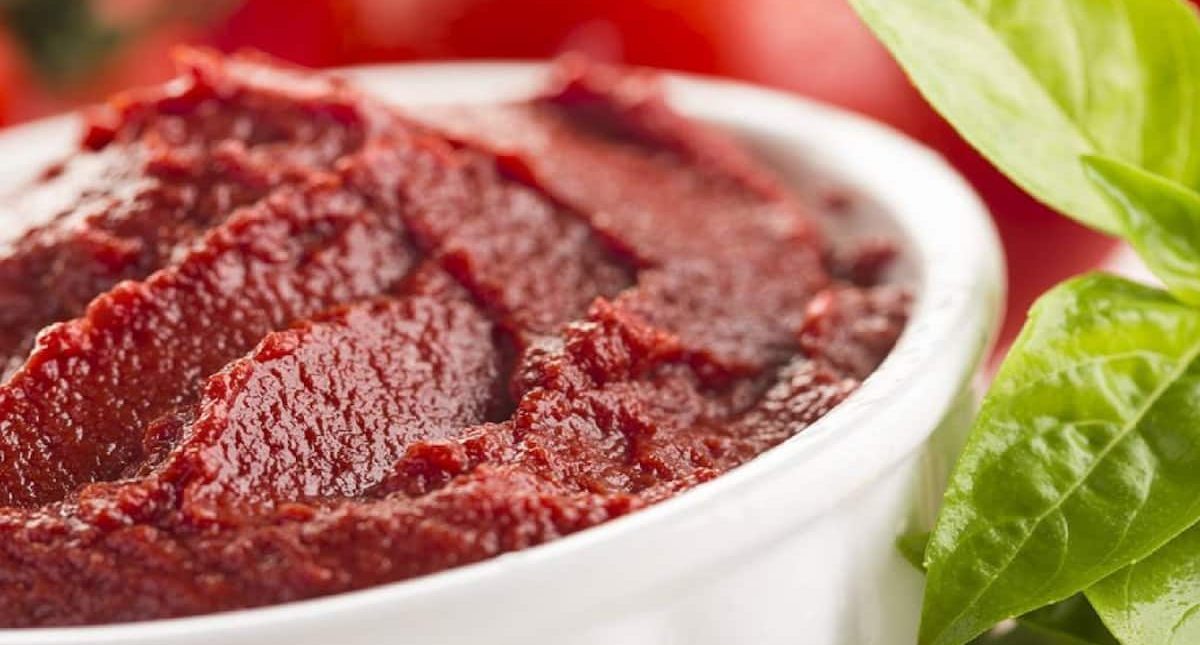
Tomato paste calories
There are just 13 calories in one tablespoon of tomato paste, and there is no fat in it
Because of this, it is unlikely that tomato paste will have much of an impact on weight gain or obesity
Because one tablespoon of tomato paste contains the equivalent of 244 units of vitamin A, tomato paste has a number of beneficial effects, including those on reproductive health, fetal development, and the health of the eyes
One tablespoon of tomato paste still has 3
5 mg of vitamin C, which can have a beneficial impact on the immune system of the human body
This is despite the fact that the majority of vitamin C in tomato paste is far lower than that of fresh tomatoes
Additionally, tomato paste is a good source of vitamin K as well as a number of different B vitamins
Because tomato paste has a major impact on the ability of red blood cells to carry out their functions, it is one of the most significant qualities that it possesses
Tomato paste contains 5 mg of iron per tablespoon
In addition, there are 162 milligrams of potassium in only one tablespoon of tomato paste
Potassium is a mineral that may be extremely helpful in controlling the quantity of water and minerals that are present in the body

